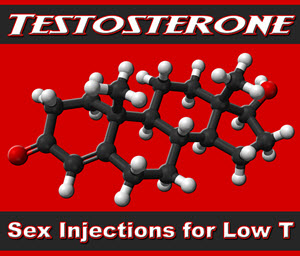Introduction
In the realm of men's health, concerns about penile size and function are prevalent, yet often shrouded in misinformation and stigma. A critical yet under-discussed aspect of this issue is the potential impact of commonly prescribed medications on penile size. This article aims to shed light on this topic, providing American males with a comprehensive understanding of how certain drugs may influence penile dimensions. Through a systematic review of existing research, we explore the relationship between medication use and penile shrinkage, offering valuable insights for those navigating their health and well-being.
Understanding Penile Shrinkage
Penile shrinkage, or the perceived reduction in penile length or girth, can be a distressing condition for many men. While aging and certain medical conditions can contribute to this phenomenon, the role of medications is a less understood but significant factor. It is essential to recognize that penile shrinkage can be temporary or permanent, depending on the underlying cause and the specific drug involved.
Common Medications and Their Effects
Several classes of medications have been associated with changes in penile size. Antihypertensive drugs, such as beta-blockers and diuretics, are commonly prescribed to manage high blood pressure. These medications can affect blood flow, potentially leading to a temporary reduction in penile size. Similarly, antidepressants, particularly selective serotonin reuptake inhibitors (SSRIs), have been linked to sexual side effects, including penile shrinkage.
Another group of medications to consider is anti-androgens, used in the treatment of conditions like prostate cancer. These drugs work by blocking the effects of testosterone, which can result in a decrease in penile size over time. Additionally, certain medications used to treat benign prostatic hyperplasia (BPH), such as 5-alpha-reductase inhibitors, have been associated with penile shrinkage as a side effect.
Mechanisms Behind Medication-Induced Shrinkage
The mechanisms through which medications can lead to penile shrinkage are multifaceted. For antihypertensive drugs, the reduction in blood flow to the penile tissue can cause a temporary decrease in size. In the case of anti-androgens and 5-alpha-reductase inhibitors, the interference with testosterone and its conversion to dihydrotestosterone (DHT) can lead to a more permanent change in penile dimensions.
It is crucial to note that not all men will experience penile shrinkage as a side effect of these medications. Individual factors, such as genetics, overall health, and the duration of medication use, can influence the likelihood and severity of this outcome.
Managing Medication-Related Penile Shrinkage
For American males concerned about the potential impact of medications on penile size, open communication with healthcare providers is essential. Discussing any changes in penile dimensions and exploring alternative treatment options can help mitigate the risk of medication-induced shrinkage. In some cases, adjusting the dosage or switching to a different medication may be appropriate.
Additionally, lifestyle modifications, such as maintaining a healthy weight, engaging in regular physical activity, and managing stress, can support overall penile health and potentially counteract the effects of certain medications.
Conclusion
Understanding the relationship between commonly prescribed medications and penile size is crucial for American males seeking to maintain their sexual health and well-being. While certain drugs may contribute to penile shrinkage, the extent and permanence of this effect can vary. By staying informed and working closely with healthcare professionals, men can navigate the potential impact of medications on their penile health, ensuring a comprehensive approach to their overall well-being.
Contact Us Today For A Free Consultation

- Penile Atrophy: Recognizing Early Signs and Importance of Timely Intervention for American Males [Last Updated On: February 22nd, 2025] [Originally Added On: February 22nd, 2025]
- Unveiling the Facts: Penis Size Transformation [Last Updated On: February 25th, 2025] [Originally Added On: February 25th, 2025]
- Size Perception: Unveiling the Phenomenon of Penis Shrinkage and Its Root Causes [Last Updated On: February 26th, 2025] [Originally Added On: February 26th, 2025]
- Embracing Natural Progression: Understanding the Impacts of Age on Male Physicality [Last Updated On: February 27th, 2025] [Originally Added On: February 27th, 2025]
- Deciphering the Enigma: Linking Hormonal Balance, Health and Penile Size Variations [Last Updated On: February 28th, 2025] [Originally Added On: February 28th, 2025]
- Examining the Dynamic Relationship: Body Weight, Dietary Habits, and Male Genital Proportions [Last Updated On: February 28th, 2025] [Originally Added On: February 28th, 2025]
- Addressing the Elephant in the Room: Understanding and Discussing Penis Shrinkage [Last Updated On: March 1st, 2025] [Originally Added On: March 1st, 2025]
- Understanding the Stress-Penis Health Nexus: An Objective Exploration [Last Updated On: March 2nd, 2025] [Originally Added On: March 2nd, 2025]
- Unveiling Andropause: Understanding Male Menopause and Its Effects on Penile Size [Last Updated On: March 2nd, 2025] [Originally Added On: March 2nd, 2025]
- Comprehensive Overview of Testosterone: Roles in Muscle Growth, Fat Distribution, Bone Density, and Age-Related Changes [Last Updated On: March 3rd, 2025] [Originally Added On: March 3rd, 2025]
- Expectations After Prostate Surgery: Physical and Psychological Impacts [Last Updated On: March 4th, 2025] [Originally Added On: March 4th, 2025]
- Exploring the Impact of Exercise on Male Sexual Health and Erectile Function [Last Updated On: March 5th, 2025] [Originally Added On: March 5th, 2025]
- Exploring the Impact of Vascular Health on Penis Size and Erectile Function [Last Updated On: March 6th, 2025] [Originally Added On: March 6th, 2025]
- Unveiling the Truth: Genetics, Lifestyle, and the Phenomenon of Penis Shrinkage in American Males [Last Updated On: March 6th, 2025] [Originally Added On: March 6th, 2025]
- Impact of Smoking and Alcohol on Male Sexual Health: Lifestyle Factors Unveiled [Last Updated On: March 7th, 2025] [Originally Added On: March 7th, 2025]
- Understanding Penis Size Concerns: Myths, Causes, and Real Solutions for Men's Health [Last Updated On: March 8th, 2025] [Originally Added On: March 8th, 2025]
- Comprehensive Insights into Chronic Illnesses Impacting Male Genital Health: A Holistic Approach [Last Updated On: March 9th, 2025] [Originally Added On: March 9th, 2025]
- Unveiling the Link Between Diabetes and Reduced Size: A Metabolic Perspective [Last Updated On: March 12th, 2025] [Originally Added On: March 12th, 2025]
- Unveiling the Truth: The Impact of Environmental Toxins on Male Genital Health [Last Updated On: March 13th, 2025] [Originally Added On: March 13th, 2025]
- A Global Insight into Penile Shrinkage: Understanding and Addressing a Universal Concern Among Men [Last Updated On: March 15th, 2025] [Originally Added On: March 15th, 2025]
- Weight Loss Reverses Penis Shrinkage: Evidence and Benefits for American Males [Last Updated On: March 17th, 2025] [Originally Added On: March 17th, 2025]
- Obesity's Impact on Male Genital Health: Understanding Penis Shrinkage and Solutions [Last Updated On: March 18th, 2025] [Originally Added On: March 18th, 2025]
- Inflammation and Oxidative Stress: Key Factors in Penis Shrinkage and Management Strategies [Last Updated On: March 18th, 2025] [Originally Added On: March 18th, 2025]
- Hypertension's Impact on Penile Size: Understanding Shrinkage in American Males [Last Updated On: March 19th, 2025] [Originally Added On: March 19th, 2025]
- Natural Remedies for Preventing Penile Shrinkage: Herbs, Supplements, and Lifestyle [Last Updated On: March 19th, 2025] [Originally Added On: March 19th, 2025]
- Hormonal Imbalances and Penis Shrinkage: Understanding Endocrine Disruptions in Males [Last Updated On: March 19th, 2025] [Originally Added On: March 19th, 2025]
- Understanding Penile Aging: Size Changes, Causes, and Health Maintenance Tips [Last Updated On: March 20th, 2025] [Originally Added On: March 20th, 2025]
- Diet and Nutrition Strategies to Combat Penis Shrinkage in American Males [Last Updated On: March 20th, 2025] [Originally Added On: March 20th, 2025]
- Chronic Stress, Cortisol, and Penile Health: Understanding and Managing the Impact [Last Updated On: March 21st, 2025] [Originally Added On: March 21st, 2025]
- Sedentary Lifestyles and Penis Shrinkage: Impacts and Preventive Measures for American Males [Last Updated On: March 22nd, 2025] [Originally Added On: March 22nd, 2025]
- Penile Measurement Techniques and Understanding Shrinkage Factors [Last Updated On: March 22nd, 2025] [Originally Added On: March 22nd, 2025]
- Understanding Penis Size: Measurement, Factors, and Shrinkage Management [Last Updated On: March 22nd, 2025] [Originally Added On: March 22nd, 2025]
- Penis Shrinkage and ED: Causes, Overlap, and Treatment Options for American Males [Last Updated On: March 23rd, 2025] [Originally Added On: March 23rd, 2025]
- Prostate Health and Its Impact on Penis Size: Understanding and Managing Changes [Last Updated On: March 23rd, 2025] [Originally Added On: March 23rd, 2025]
- Understanding Penis Shrinkage: Causes, When to See a Urologist, and Treatment Options [Last Updated On: March 23rd, 2025] [Originally Added On: March 23rd, 2025]
- Understanding Penile Shrinkage: Causes, Prevention, and Health Tips for American Men [Last Updated On: March 23rd, 2025] [Originally Added On: March 23rd, 2025]
- HRT's Role in Preventing Penis Shrinkage: Benefits and Risks for American Males [Last Updated On: March 24th, 2025] [Originally Added On: March 24th, 2025]
- Relationship Dynamics and Penis Size Perception: Understanding Shrinkage and Its Impacts [Last Updated On: March 24th, 2025] [Originally Added On: March 24th, 2025]
- Medications Linked to Penile Shrinkage: Causes, Risks, and Management Strategies [Last Updated On: March 24th, 2025] [Originally Added On: March 24th, 2025]
- Understanding Penile Atrophy: Causes, Symptoms, and Importance of Urological Exams [Last Updated On: March 24th, 2025] [Originally Added On: March 24th, 2025]
- Preventing Penis Shrinkage: Lifestyle Tips for American Males [Last Updated On: March 24th, 2025] [Originally Added On: March 24th, 2025]
- Understanding Penile Shrinkage: Causes, Impacts, and Breaking the Stigma in American Men [Last Updated On: March 25th, 2025] [Originally Added On: March 25th, 2025]
- Understanding Penile Atrophy: Causes, Effects, and Treatments for American Men [Last Updated On: March 25th, 2025] [Originally Added On: March 25th, 2025]
- Smoking and Penis Shrinkage: Cessation Strategies and Genital Health Recovery [Last Updated On: March 25th, 2025] [Originally Added On: March 25th, 2025]
- Sleep Disorders and Penis Shrinkage: Impacts on American Males' Sexual Health [Last Updated On: March 25th, 2025] [Originally Added On: March 25th, 2025]
- Environmental Pollution's Impact on Male Reproductive Health and Penis Size in America [Last Updated On: March 25th, 2025] [Originally Added On: March 25th, 2025]
- Peyronie's Disease: Understanding Penis Shrinkage and Treatment Options for American Males [Last Updated On: March 25th, 2025] [Originally Added On: March 25th, 2025]
- Anti-Inflammatory Diets: A Strategy to Prevent Penis Shrinkage in American Males [Last Updated On: March 26th, 2025] [Originally Added On: March 26th, 2025]
- Sleep's Impact on Sexual Health: Preventing Penile Shrinkage in American Males [Last Updated On: March 26th, 2025] [Originally Added On: March 26th, 2025]
- Weight Loss and Penis Size: Understanding Changes in American Men [Last Updated On: March 26th, 2025] [Originally Added On: March 26th, 2025]
- Chronic Illnesses and Penis Shrinkage: Causes, Impacts, and Management Strategies for American Males [Last Updated On: March 26th, 2025] [Originally Added On: March 26th, 2025]
- Meditation and Stress Reduction: Key to Preventing Penis Shrinkage in American Men [Last Updated On: March 26th, 2025] [Originally Added On: March 26th, 2025]
- Coping with Perceived Penis Shrinkage: Psychological Strategies for American Men [Last Updated On: March 26th, 2025] [Originally Added On: March 26th, 2025]
- Metabolic Syndrome Linked to Penis Shrinkage in American Males: Causes and Prevention [Last Updated On: March 26th, 2025] [Originally Added On: March 26th, 2025]
- Genetic Variability and Its Impact on Penis Size and Shrinkage [Last Updated On: March 26th, 2025] [Originally Added On: March 26th, 2025]
- Innovative Treatments for Penis Shrinkage: Stem Cells, Shockwave, and Pharmacological Advances [Last Updated On: March 27th, 2025] [Originally Added On: March 27th, 2025]
- Boost Testosterone Naturally: Diet, Exercise, and Lifestyle to Prevent Penis Shrinkage [Last Updated On: March 27th, 2025] [Originally Added On: March 27th, 2025]
- Inflammation's Role in Penis Shrinkage: Cellular Mechanisms and Prevention Strategies [Last Updated On: March 27th, 2025] [Originally Added On: March 27th, 2025]
- Cardiovascular Fitness: Key to Preventing Penile Shrinkage in American Men [Last Updated On: March 27th, 2025] [Originally Added On: March 27th, 2025]
- American Men's Experiences with Penile Atrophy: Causes, Treatment, and Coping Strategies [Last Updated On: March 27th, 2025] [Originally Added On: March 27th, 2025]
- Guide to Accurate Penis Measurement and Understanding Shrinkage for American Males [Last Updated On: March 27th, 2025] [Originally Added On: March 27th, 2025]
- Preventing Penile Shrinkage: Enhancing Vascular Health in American Males [Last Updated On: March 27th, 2025] [Originally Added On: March 27th, 2025]
- Androgens' Crucial Role in Preventing Penile Shrinkage Among American Males [Last Updated On: March 27th, 2025] [Originally Added On: March 27th, 2025]
- Managing Penis Shrinkage in Aging Men: Causes, Impacts, and Interventions [Last Updated On: March 27th, 2025] [Originally Added On: March 27th, 2025]
- Regular Exercise: A Key to Preventing Age-Related Penile Shrinkage in Men [Last Updated On: March 27th, 2025] [Originally Added On: March 27th, 2025]
- Emerging Therapies Revolutionize Treatment of Penis Shrinkage in American Males [Last Updated On: March 28th, 2025] [Originally Added On: March 28th, 2025]
- Managing Penile Atrophy: Causes, Diagnosis, and Effective Strategies for American Males [Last Updated On: March 28th, 2025] [Originally Added On: March 28th, 2025]
- Alcohol Consumption and Penis Size: The Importance of Moderation in American Males [Last Updated On: March 28th, 2025] [Originally Added On: March 28th, 2025]
- Penis Size and Sexual Health: Function, Sensation, and Holistic Well-being [Last Updated On: March 29th, 2025] [Originally Added On: March 29th, 2025]
- Vascular Surgery: A Hopeful Solution for Penis Shrinkage in American Males [Last Updated On: March 30th, 2025] [Originally Added On: March 30th, 2025]
- Chronic Diseases and Penis Shrinkage: Insights and Management Strategies for Men [Last Updated On: March 31st, 2025] [Originally Added On: March 31st, 2025]
- Superfoods Boost Vascular Health, Prevent Penis Shrinkage in American Males [Last Updated On: April 1st, 2025] [Originally Added On: April 1st, 2025]
- Psychological Support for American Men with Perceived Penis Shrinkage: Strategies and Insights [Last Updated On: April 3rd, 2025] [Originally Added On: April 3rd, 2025]
- Andropause and Penis Shrinkage: Understanding and Managing Male Aging Symptoms [Last Updated On: April 4th, 2025] [Originally Added On: April 4th, 2025]
- Understanding and Managing Penis Shrinkage: Causes, Effects, and Support for American Males [Last Updated On: April 4th, 2025] [Originally Added On: April 4th, 2025]
- Hypertension Medications and Penile Shrinkage: Insights for American Males [Last Updated On: April 6th, 2025] [Originally Added On: April 6th, 2025]
- Chronic Stress and Penile Health: Understanding Impacts and Management Strategies [Last Updated On: April 6th, 2025] [Originally Added On: April 6th, 2025]
- Supplements and Penis Health: Evaluating Efficacy and Risks [Last Updated On: April 8th, 2025] [Originally Added On: April 8th, 2025]
- Hormonal Health and Penis Size: Understanding and Prevention Strategies for American Males [Last Updated On: April 9th, 2025] [Originally Added On: April 9th, 2025]
- Male Genital Health: Importance of Regular Check-Ups for Preventing Penis Shrinkage [Last Updated On: April 9th, 2025] [Originally Added On: April 9th, 2025]
Word Count: 548




















